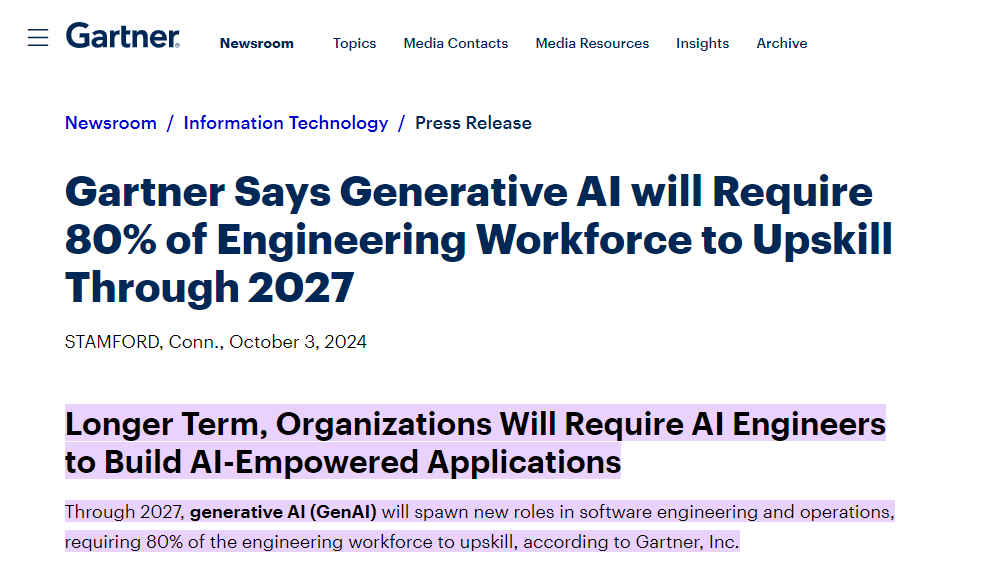According to a recent study released by Gartner, it is estimated that by 2027, 80% of software developers will need additional training in generative artificial intelligence (AI). This report highlights a significant trend: as AI technology advances, businesses will increasingly require specialized AI engineers to build AI-driven applications.

Gartner's analysts believe that generative AI will undergo three distinct phases of development in software engineering. In the short term, they anticipate moderate productivity gains, particularly for experienced developers. In the mid-term, the use of AI agents will lead to more automation, with developers primarily guiding the work of these AI agents. In the long term, the demand for engineers with AI engineering skills will grow significantly to keep pace with rapidly changing market needs.
Gartner's Senior Principal Analyst Philip Walsh noted that AI engineers will need a unique skill set, including software engineering, data science, and AI/machine learning, which will be highly sought after in the future market.
To address this skills gap, Gartner recommends that businesses invest in AI development platforms and enhance training for data engineering and platform engineering teams. Additionally, companies should adopt tools and processes for continuous integration and AI system development.
Despite the increasing role of AI, Gartner emphasizes that human expertise and creativity remain crucial for achieving complex and innovative software solutions. Gartner believes that while AI will play an increasingly important role, skilled human developers will remain indispensable in the foreseeable future.
Key Points:
🌟 By 2027, 80% of software developers will need generative AI training to keep up with technological advancements.
🤖 Generative AI will experience three phases: short-term moderate improvement, mid-term increased automation, and long-term demand for AI engineers.
💼 Businesses need to invest in AI platforms and training; despite AI's growing importance, human expertise remains essential.








